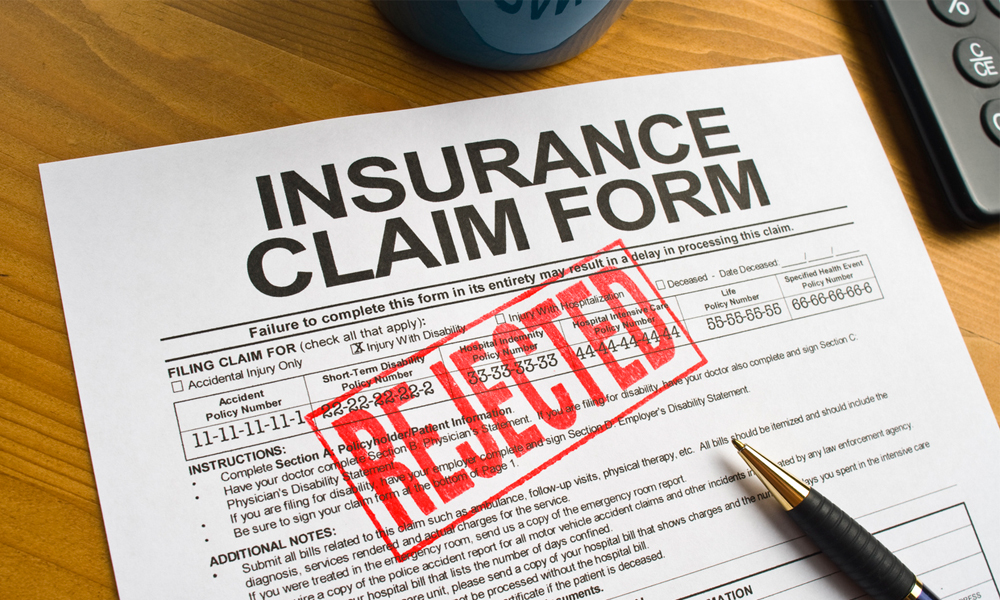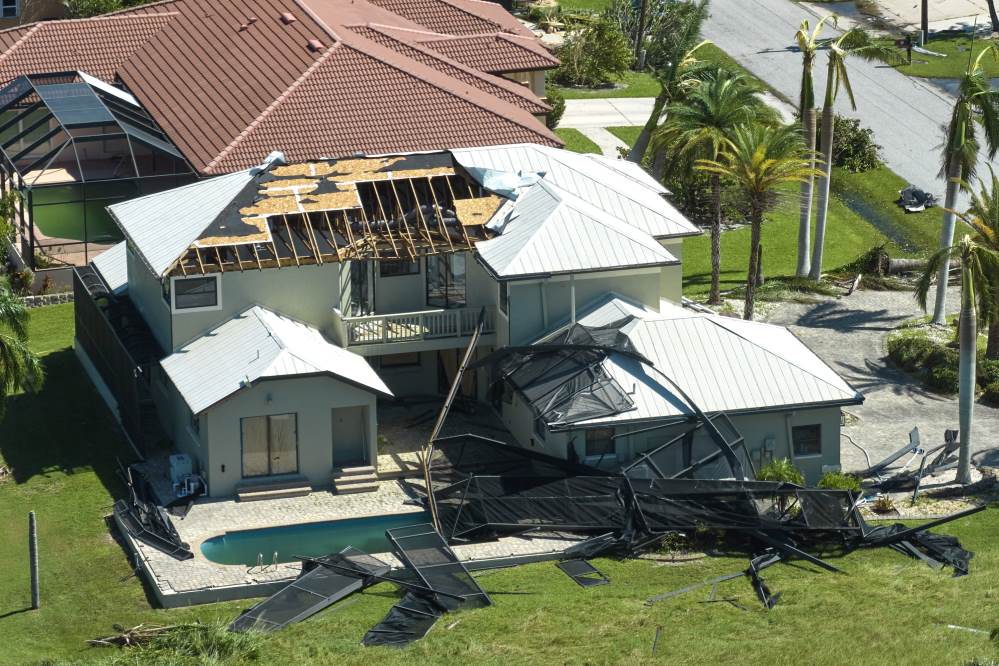
BAD FAITH INSURANCE ATTORNEYS: Your Insurance Claims Experts
Insurance coverage is a vital safety net that individuals and businesses rely on to protect themselves from unforeseen risks and financial losses. However, when insurance companies act in bad faith by unfairly denying or delaying valid claims, policyholders can find themselves in a state of distress and uncertainty.
Insurance bad faith occurs when an insurer fails to honor its contractual obligations or engages in deceptive practices to avoid paying legitimate claims. Understanding insurance bad faith law is crucial for safeguarding your rights and holding insurance companies accountable for their actions.
On this page, we will explore the complexities of insurance bad faith law, discussing its various elements, common tactics employed by insurers and major insurance companies, and why seeking the assistance of an experienced Law Leaders Insurance Lawyer member is essential for protecting your interests.
UNDERSTANDING INSURANCE BAD FAITH CLAIMS
Defining Insurance Bad Faith
- Bad faith insurance refers to the improper conduct of an insurance company, wherein the insurer fails to fulfill its contractual obligations to the policyholder in a dishonest, unfair, or unreasonable manner. This can manifest in various ways, including unjustified denial of valid claims, unreasonable delays in claims processing, underpayment of claims, or deceptive practices aimed at avoiding coverage.
Essentially, it involves the insurer not acting in accordance with the implied covenant of good faith and fair dealing that exists in insurance contracts, which requires insurers to deal fairly and honestly with their policyholders. When an insurer engages in bad faith practices, it violates the trust and confidence placed in it by policyholders and may be subject to legal action, including claims for damages.
Types of Insurance Bad Faith Insurance Claims
- Claim denial of valid claims without proper investigation or justification commonly around such claims dealing with: health insurance, life insurance claims, personal injury claims, property loss, natural disasters, breach of contract, coverage disputes, third-party claims, wrongful denials, insurance adjusters, disability insurance, business interruptions, fair compensation, breach of contract claims, policy limits, health insurance claims, insurance coverage policy disputes, attorney fees, policy coverage disputes, homeowners insurance, water damage claims, property damage claims, fair payments, delay in payments, construction defects, coverage denials, and much more.
- Unreasonable delays in processing claims.
- Underpayment or undervaluation of claims.
- Breach of the duty to defend policyholders in liability claims.
Legal Standards for Bad Faith Insurance Claims
- Overview of the legal standards and criteria used to determine whether an insurer has acted in bad faith.
- Examination of case law and precedents that have shaped insurance bad faith jurisprudence.
Common Tactics Used by Insurance Companies
Misrepresentation of Policy Terms
- Instances where insurers misrepresent the terms of the policy to deny coverage.
- Strategies employed by insurers to confuse policyholders about their rights and entitlements.
Delaying Claim Processing
- Tactics used by insurers to prolong the claims process, causing financial hardship for policyholders.
- The impact of delayed claim payments on policyholders’ ability to recover from losses.
Lowball Settlement Offers
- Explanation of how insurers may offer inadequate settlement amounts to minimize their financial liability.
- Techniques for identifying and challenging unfair settlement offers.
Failure to Investigate Claims
- Instances where insurers fail to conduct a thorough investigation into the merits of a claim before denying coverage.
- Importance of gathering evidence and documentation to support a bad faith insurance claim and refute bad faith insurance allegations.
Why You Need an Experienced Law Leaders Insurance Law Member Attorney
Skilled Expertise in Insurance Law and dealing with insurance companies
- Law Leaders Insurance Law member attorneys possess in-depth knowledge and experience in handling insurance policies, bad faith denials, and insurance-related matters.
- Understanding of complex insurance contracts, regulations, and legal precedents when dealing with an insurance company.
Advocacy and Negotiation Skills
- Law Leaders attorneys are skilled negotiators who can effectively advocate for policyholders’ rights and interests. Strategies for maximizing compensation and achieving favorable outcomes through negotiation.
Access to Resources and Networks
- Law Leaders Insurance Law member attorneys have access to a vast network of resources, including expert witnesses and industry professionals.
- Collaboration with other legal experts to strengthen the policyholder’s case and build compelling arguments.
Litigation Experience and Trial Representation
- Law Leaders bad faith insurance attorneys are prepared to take insurance bad faith cases to trial if necessary.
- Track record of success in litigating complex insurance disputes and holding insurers accountable for their actions.
Insurance bad faith is a serious issue that can have profound consequences for policyholders who rely on their insurance coverage for protection and peace of mind. Recognizing the signs of bad faith behavior by insurers and understanding your rights as a policyholder are critical steps in seeking justice and fair treatment. However, navigating the complexities of insurance bad faith law requires the expertise and guidance of an experienced bad faith insurance lawyer in this area.
By partnering with an experienced Law Leaders bad faith lawyers, you can level the playing field and pursue the compensation you deserve. If you believe you have been a victim of insurance bad faith by an insurance company, don’t hesitate to contact a Law Leaders attorney for trusted legal representation and advocacy.

FREQUENTLY ASKED QUESTIONS
What is insurance bad faith?
Insurance bad faith refers to the wrongful conduct of an insurance company, wherein it fails to honor its contractual obligations to the policyholder in a dishonest, unfair, or unreasonable manner.
What are common examples of insurance bad faith?
Examples include unjustified denial of valid claims, unreasonable delays in claims processing, underpayment of claims, failure to properly investigate claims, and deceptive practices aimed at avoiding coverage.
How can I recognize insurance bad faith?
Signs include receiving inconsistent or misleading information from the insurer, experiencing delays or obstacles in claims processing, and receiving unreasonably low settlement offers.
What should I do if I suspect insurance bad faith?
Keep detailed records of all communications with the insurer, including claim documents and correspondence. Consider seeking legal advice from an experienced Law Leaders member attorney who is skilled in handling insurance bad faith claims.
What legal recourse do I have for insurance bad faith?
You may have grounds to pursue legal action against the insurer for damages, including compensatory and punitive damages, to hold them accountable for their wrongful conduct.
How do I prove insurance bad faith?
To establish a claim of insurance bad faith, you typically need to demonstrate that the insurer acted unreasonably or dishonestly in handling your claim, and that their actions caused harm to you as the policyholder.
Is there a time limit for filing an insurance bad faith claim?
Yes, there are statutes of limitations that vary by jurisdiction, specifying the time within which you must file a bad faith claim. It’s important to consult with a lawyer promptly to ensure compliance with these deadlines.
What compensation can I recover in an insurance bad faith claim?
Depending on the circumstances of your case, you may be entitled to recover damages such as the value of the denied claim, consequential damages resulting from the insurer’s conduct, and potentially punitive damages.
Do I need an attorney for an insurance bad faith claim?
While you can pursue a bad faith claim on your own, having an experienced attorney who specializes in insurance bad faith can greatly enhance your chances of success and ensure that your rights are protected.
How do I choose the right attorney for my insurance bad faith claim?
Look for attorneys with extensive experience and a proven track record in handling insurance bad faith cases. Consider factors such as their expertise, reputation, and willingness to take your case to trial if necessary. Many law firms offer free consultations to discuss your case and determine the best course of action.
Take the First Step – Speak with a Law Leaders Attorney For FREE Now
If your insurance company is wrongfully denying your valid claim, you have the right to demand payment and bring legal action if necessary. Your well-being is our top priority. Facing a bad faith insurance dispute can be overwhelming, but you don't have to navigate it alone.
Our highly-experienced Law Leaders member attorneys are dedicated to guiding you through every step of the process, ensuring you receive the justice and compensation you deserve. Let us stand by your side and advocate for your rights. You can get started today by contacting us to schedule a confidential free consultation.

 1-800-LAW-Leaders (529-5323)
1-800-LAW-Leaders (529-5323)